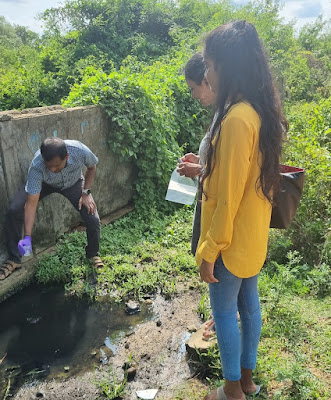The College of Education at Vavuniya, Sri Lanka is working with YWP in addressing the challenges of untreated wastewater disposal. I have coordinated YWP to assess the technical, financial, social, and environmental aspects of a potential wastewater management system for the College of Education, which can be applicable to other educational institutions in near future.
As the first step, we have conducted site assessments to understand the current status, examine the demographic, social, economic and environmental aspects and determine the quantity and quality of wastewater generated by the institution. This was followed by an evaluation of the available treatment technologies, including conventional methods.
The College of Education, Vavuniya extends in 57 hectares and accommodates approximately 500 inhabitants at a time including staff quarters and hostels. About 530 m3 of water is extracted daily from existing two dug wells and tube wells for drinking and other purposes. The major part of the wastewater is generated from the hostel complexes and kitchen which is directly discharged to the nearby Vavuniya pond without any prior treatment.
This improper wastewater disposal resulted in many health, social and environmental impacts not only to the College environment but also to the whole ecosystem surrounding the College of Education. To address these issues and find a viable solution, social, economic and environmental feasibility study has been undertaken by the ‘Young Water Professionals’ along with the College of Education, University of Jaffna, Vavuniya Urban Council, and other relevant departments and authorities.
Based on the findings of the feasibility study, a comprehensive wastewater management plan was developed by providing nature based solution. Constructed wetland method was proposed considering the technical, financial, social and environmental aspects of the system.


